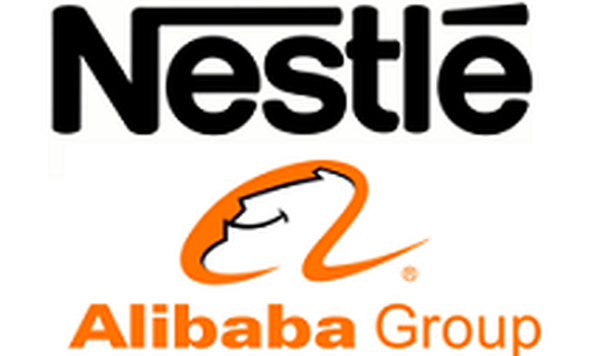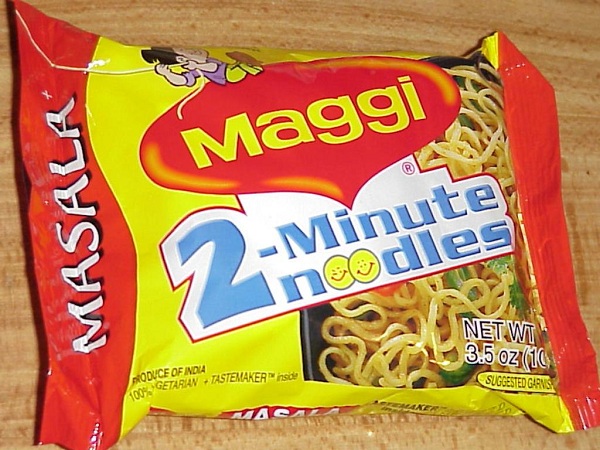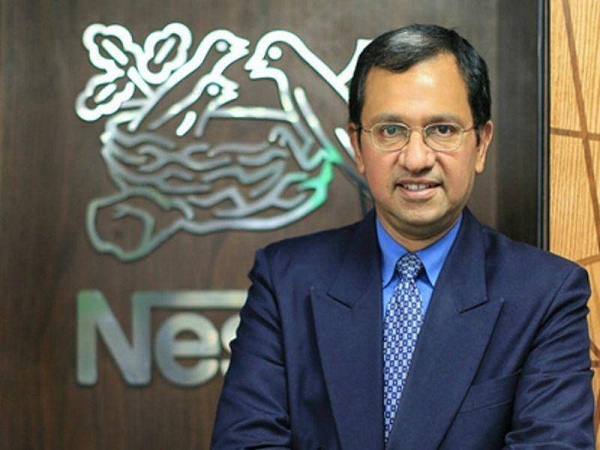
by admin | May 25, 2021 | Business, Large Enterprise
 Beijing, (IANS) Nestle and Alibaba on Sunday announced plans to upgrade their partnership.
Beijing, (IANS) Nestle and Alibaba on Sunday announced plans to upgrade their partnership.
The world’s largest food retailer will launch its biggest e-commerce campaign ever with its diverse products, spanning 30 brands from coffee to baby formula, being sold on Alibaba’s expansive e-commerce platforms such as Tmall, Xinhua reported.
“Our partnership with Alibaba is all about the consumer. What is so exciting about China as a market is not only its size or population, but that Chinese consumers are a step ahead of consumers in other markets in the digital way they consume,” Wan Ling Martello, executive vice president with Nestle overseeing the Asian, Oceanian and African markets, said in a conference marking the company’s 150-year anniversary.
China is the right place to start Nestle’s next 150-year growth story as Chinese consumers have a more developed understanding and are quicker to adopt new consumption technologies than their global peers and have great passion for innovation, she added.
China’s consumption pattern and manner have evolved fast and consumption is becoming increasingly digital with more young consumers choosing to shop online, said Zhang Yong, Alibaba CEO.
The volume of online purchases surged by more than 12 times from January 2011 to April 2016 in China, while per capita consumption grew by 27 percent, according to a joint report released by Alibaba’s financial services platform Ant Financial and a private economics research institute.
Nestle strengthened its global capabilities in e-commerce by signing a strategic cooperation partnership with Alibaba in late 2015 to increase its online sales and build its brands. In 2015, half of Nestle’s sales in China were online.

by admin | May 25, 2021 | Corporate, Corporate Buzz, News
 New Delhi:(IANS) Nestle India on Wednesday said the “masala” version of Maggi noodles will hit the retail shelves as early as this month, having cleared all the tests ordered by the Bombay High Court at three accredited laboratories.
New Delhi:(IANS) Nestle India on Wednesday said the “masala” version of Maggi noodles will hit the retail shelves as early as this month, having cleared all the tests ordered by the Bombay High Court at three accredited laboratories.
“We have received the results from all the three NABL (National Accreditation Board for Testing Calibration Laboratories) mandated by the Bombay High Court to test newly-manufactured Maggi noodles samples,” the company said in a regulatory filing with stock exchanges.
“All the samples of the Maggi noodles masala have been cleared with lead much below permissible limits,” the statement said, adding that this has validated their stand, maintained all along, that the noodles were and continue to be safe.
“We will make our best effort to commence the sale of Maggi noodles masala within this month as well as continue engaging with the states where permissions are needed or specific directions may be necessary.”
What now remains to be resolved is the class action suit of Rs.640 crore filed by the government against Nestle India in the apex consumer court. The verdict on this is expected on November 23.
In mid-October, Nestle India had said that all samples of Maggi noodles of the batches that were in question had passed the required tests as directed by the Bombay High Court, but added that it will be re-launched only after the newly-manufactured product also pass the tests.
The newly-manufactured products underwent the tests at labs in Mohali, Jaipur and Hyderabad.
As regards the other eight variants, a spokesperson for Nestle India said as and when the company decides to re-introduce them, the due process will be followed. He, however, did not indicate the time-frame within which these varieties will hit the market.
The company said Maggi was currently being manufactured at Nanjangud in Karnataka, Moga in Punjab and Bicholim in Goa, and that it was engaging with the state governments of Himachal Pradesh and Uttarakhand for commencing production at Tahliwal and Pantnagar, respectively.
In June, the Food Safety and Standards Authority of India (FSSAI) had ordered a pan-India ban on the company’s noodles on the ground that these were “unsafe and hazardous” for human consumption due to presence of lead, allegedly beyond permissible limits.
But on August 13, the Bombay High Court gave a significant respite to the company by lifting the ban on the sale of the noodle, while also ordering fresh tests to be conducted in three separate labs to ascertain that the product complied with the country’s food safety norms.
The court order meant the original product safety certificate of the watchdog remained valid.
Nestle also said it had, on its own, conducted over 3,500 tests representing around 200 million packs in both national as well as international accredited laboratories — and that all of them had given the noodles a clean chit.
“In addition to these, various countries including the US, UK, Singapore, Australia and others have found Maggi noodles exported from India to be safe for consumption” the statement issued on Wednesday said.
Once the noodles brand had passed the tests as ordered by the court in mid-October, a host of states that had imposed their own ban on the produce also revoked it, led by Karnataka, Goa and Gujarat.
A related case now remains. This pertains to the class action suit filed by the consumer affairs ministry against Nestle India, seeking about Rs.640 crore in damages for alleged unfair trade practices, false labelling and misleading advertisements.
The apex consumer court, which had also ordered fresh tests, is expected to deliver its verdict on this on November 23.

by admin | May 25, 2021 | Halal Food, Halal Industries
 New Delhi:(IANS) The apex consumer court on Wednesday said it will hear Nestle’s arguments on fresh tests conducted on its popular Maggi noodles on October 8, and take up the larger class action suit filed against the Swiss giant by the end of next month.
New Delhi:(IANS) The apex consumer court on Wednesday said it will hear Nestle’s arguments on fresh tests conducted on its popular Maggi noodles on October 8, and take up the larger class action suit filed against the Swiss giant by the end of next month.
The decision was taken after after an initial hearing of arguments regarding the class action suit filed by the central government against Nestle India for alleged unfair trade practices.
Appearing for the Ministry of Consumer Affairs, Additional Solicitor General Sanjay Jain sought more time from the commission to present the fresh tests on the 27 sealed samples of different variants of Maggi collected from the market, to which Nestle had raised objections.
Jain, along with counsels Mrinalini Sen Gupta and Prabhsahay Kaur, also placed the samples of different variants they wished to be tested before the court. But the Nestle counsel wanted to know from where they had been, since the product was withdrawn from the market on June 5.
A bench of the National Consumer Disputes Redressal Commission, comprising Justice V.K. Jain and Justice B.C. Gupta, said the court will meet again on October 8 to hear the arguments of Nestle India over the fresh tests.
The commission also questioned why Nestle India should have a problem with the testing of their own products, and said, “The government wasn’t producing the product”.
The government’s counsel had also filed an application to allow the Food Safety and Standards Authority of India (FSSAI) as a party to assist the commission.
During the hearing Nestle India said the company has been singled out and questioned why its competitor brands weren’t being tested.
Responding to some test reports done by the government, which were missing from the application filed before the court and marked as “Not Applicable”, Nestle’s counsel said material supporting their company was being concealed and needed to be produced.

by admin | May 25, 2021 | Halal Food, Halal Industries
 New Delhi:(IANS) The Rs.640-crore class action suit filed by the Indian government against Nestle alleging unfair trade practices with regard to Maggi is scheduled to be heard by the apex consumer disputes forum on Friday, but the company expressed disappointment over the suit since the matter was sub-judice.
New Delhi:(IANS) The Rs.640-crore class action suit filed by the Indian government against Nestle alleging unfair trade practices with regard to Maggi is scheduled to be heard by the apex consumer disputes forum on Friday, but the company expressed disappointment over the suit since the matter was sub-judice.
According to the media officer in the Department of Consumer Affairs, Rs.284.55 crore has been sought for unfair trade practice of selling defective and hazardous goods, and Rs.355.40 crore as punitive damage from Nestle at the National Consumer Disputes Redressal Commission (NCDRC).
“The department has filed this class action suit on behalf of the large number of consumers of Maggi in the country against Nestle India on the grounds of unfair trade practices, sale of defective goods and sale of Maggi Oats Noodles to the public without product approval,” he said.
“The punitive damages have been claimed on account of gross negligence, apathy and callousness on the part of the opponent company.”
While Nestle in its latest statement expressed disappointment over the government’s action.
“We are disappointed with the unprecedented step of filing of a complaint before the NCDRC against Nestle India. It appears that the complaint makes similar allegations which were made to ban the product on 5th June 2015.”
These issues are awaiting judgment by the Bombay High Court, the company added.
Nestle also said, “We confirm that we do not add Monosodium Glutamate (MSG) in the manufacture of Maggi noodles.”
The company further added that MSG is one of several forms of glutamic acid found in natural foods such as groundnuts/peanuts, wheat flour, tomatoes and cheese.
“As we use some of these ingredients in Maggi noodles, the product will contain natural glutamic acid. We therefore strongly reiterate that the ‘No Added MSG’ statement on the product was not an attempt to mislead consumers.”
In recent months, over 2,700 samples of Maggi noodles were tested by several accredited laboratories in India and abroad. Each one of these tests have shown lead to be far below the permissible limits, said Nestle, who have had their presence in the country for over 103 years.
The complaint, the department’s media officer said, has been filed under Section 12(1)(d) of the Consumer Protection Act, 1986. Under this clause, the central or the state government may file such suits in the interests of the consumers in general file.
In a class action suit, a single case is filed collectively by a group of people or on its behalf. The central or state governments can also become the complainants.
According to legal practitioners, this is a first of its kind class action suit filed by the government of India against a company, since the Consumer Protection Act of 1986 was enforced.
According to one of the law officers representing the government, who did not wish to be named, the complaint was filed on three grounds — unfair trade practice, release of products without sanction and presence of harmful substances.
Reacting to the suit filed in the consumer court, senior counsel Vivek Tankha, who was additional solicitor general in the previous United Progressive Alliance (UPA) government, felt such action could have come after some matters were settled.
“I feel it is over-reaching too early. Even today we’re getting inconsistent reports from different laboratories in India and abroad,” Tankha told IANS, also referring to the matter being sub-judice in the Bombay High Court.
“Government should have shown patience. It should not have rushed into ill-advised litigation at this stage. Compensation suits are filed on crystallised facts,” he said.
“In this case, the fact that Maggi is bad for health is in dispute, sub-judice. The Bombay High Court still has to give the judgment. Whosoever is unsuccessful will file an appeal before the apex court.”
Nestle India has continued to maintain that quality and safety in manufacture of its products have been of paramount importance to the company.

by admin | May 25, 2021 | Business, Economy, Large Enterprise, News

Suresh Narayanan, the new India chief of the $97.5 billion Swiss processed food giant Nestle. (Photo Credit Economic Times)
New Delhi:(IANS) Suresh Narayanan, the new India chief of the $97.5 billion Swiss processed food giant Nestle, on Saturday said the popular instant noodle brand Maggi will be back on retail shelves as soon as possible, even as the company will launch more instant snacks and also focus on other areas of operations.
Narayanan, 55, who officially took charge of India operations on Saturday replacing managing director Etienne Benet who stepped down on July 25, said dairy, chocolates and confectioneries will all be in focus to push growth.
“All of this is part of the agenda,” he said in a meeting with select media persons, adding that he will focus on five key areas.
“First focus is to get Maggi back. Then put the growth on other categories. Third, to engage more with stakeholders and authorities. Fourth, to improve focus and energies around the environment where we can do better. Finally, engage with our people (employees),” he said.
He also said that the company will launch instant alternate snacking options in India, but did not specify any timeframe for it.
During the hour-long interaction, Narayanan declined any direct comment on the controversy over the ban on Maggi noodles, over which Nestle has moved the Bombay High Court. “We have to get back Maggi on the shelves. As of now, the matter is sub judice. Everything depends on the outcome. Let’s wait and see,” he said.
He said the controversy had cast a shadow over the rest of Nestle’s portfolio and the company will enhance its marketing and advertising activities to tide over the situation.
Having specifically flown in to India from Manila, where he was overseeing the Philippines operations as chairman, Narayanan said he had faced a host of challenges in his career and that the current one too would tide over.
The Bombay High Court is expected to deliver its verdict on the Maggi ban on Monday.
Asked whether the company management strategically roped in an Indian face, who speaks Hindi, to tide over the current crisis period, he said: “My being an Indian, my boss says, is icing on the cake. Since I can speak the Hindi language, I can feel the heartbeat of the people.”
An alumnus of the Delhi School of Economics, Narayanan also allayed fears of any job cut in the company, which employs 7,200 people, anytime soon.
“Every single permanent employee has his job. The situation is not a pleasant one. We have redeployed people to other activities. We will overcome this. We are a people’s company. My first task is to bring back people’s confidence,” he said.
“Maggi is a key part of our business. We will continue to be a part of this country as we have been for the last 100 years,” said Narayanan, who has served Nestle for some 16 years, having joined the group in India in 1999.
Asked about the company’s interaction with the government, the soft-spoken Nestle India chief, who began his international career began in 2003, said: “We are constantly engaged with the authorities.”
India’s official food regulator on June 5 had banned the sale of Maggi after an allegedly high amount of lead and monosodium glutamate (MSG) were found in samples. Following that, Nestle withdrew all the variants of the noodle, while continuing to maintain that its products were safe.
At the same time, a number of other countries also found the noodle imported from India to be safe. The countries included Britain, Singapore and Canada.
For Nestle India, Maggi was the dominant brand under “prepared dishes and cooking aids” and accounted for 31.5 percent of the sales in 2014. Among the other three divisions, “milk products and nutrition” fetched 47.1 percent, followed by 12.2 percent from chocolates and confectionery” and 9.2 percent from beverages”.
The Maggi unit saw a 1.8 percent increase in volumes in 2014 over the previous year and 8.1-percent rise in value at Rs.21.4 billion.

 Beijing, (IANS) Nestle and Alibaba on Sunday announced plans to upgrade their partnership.
Beijing, (IANS) Nestle and Alibaba on Sunday announced plans to upgrade their partnership.

